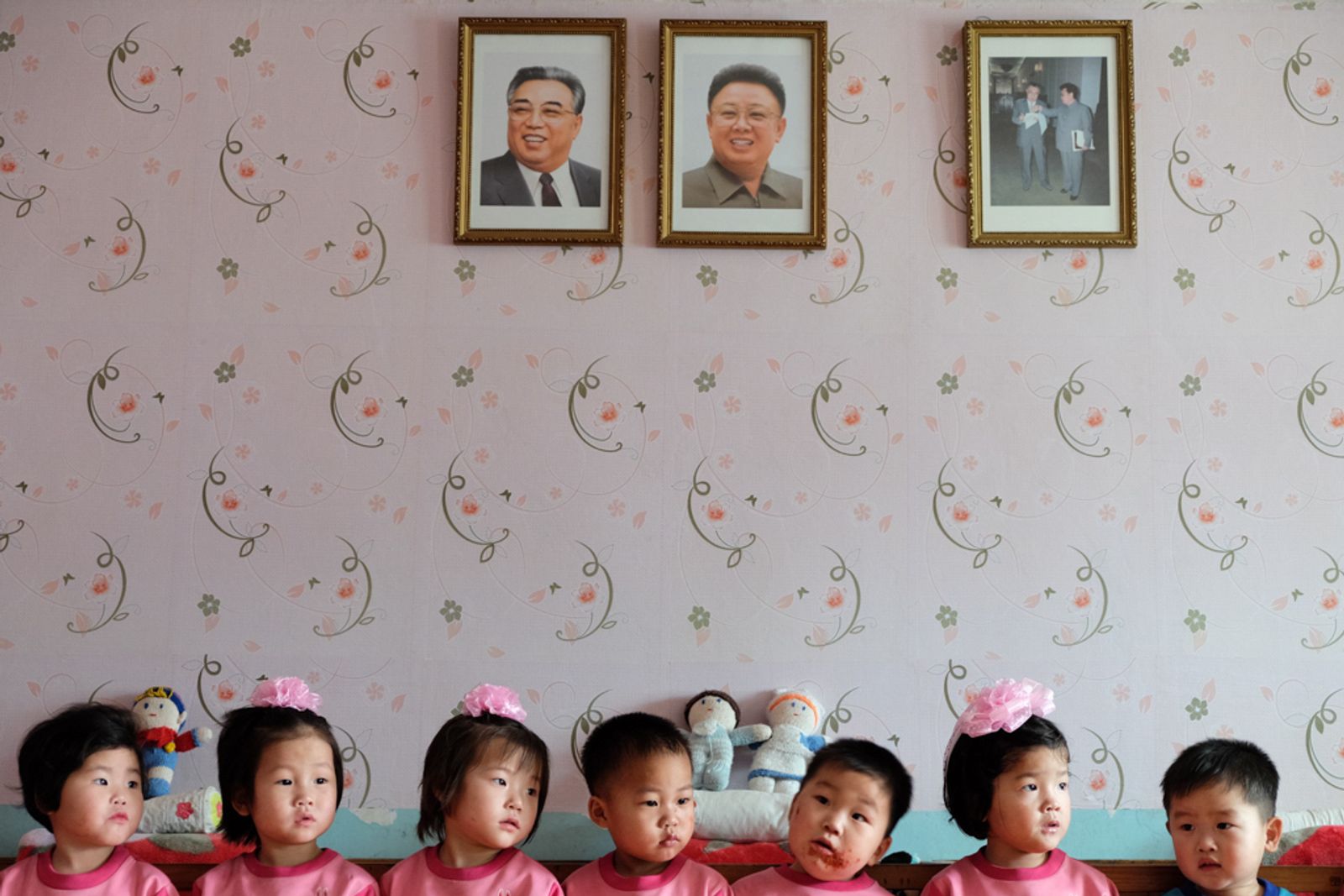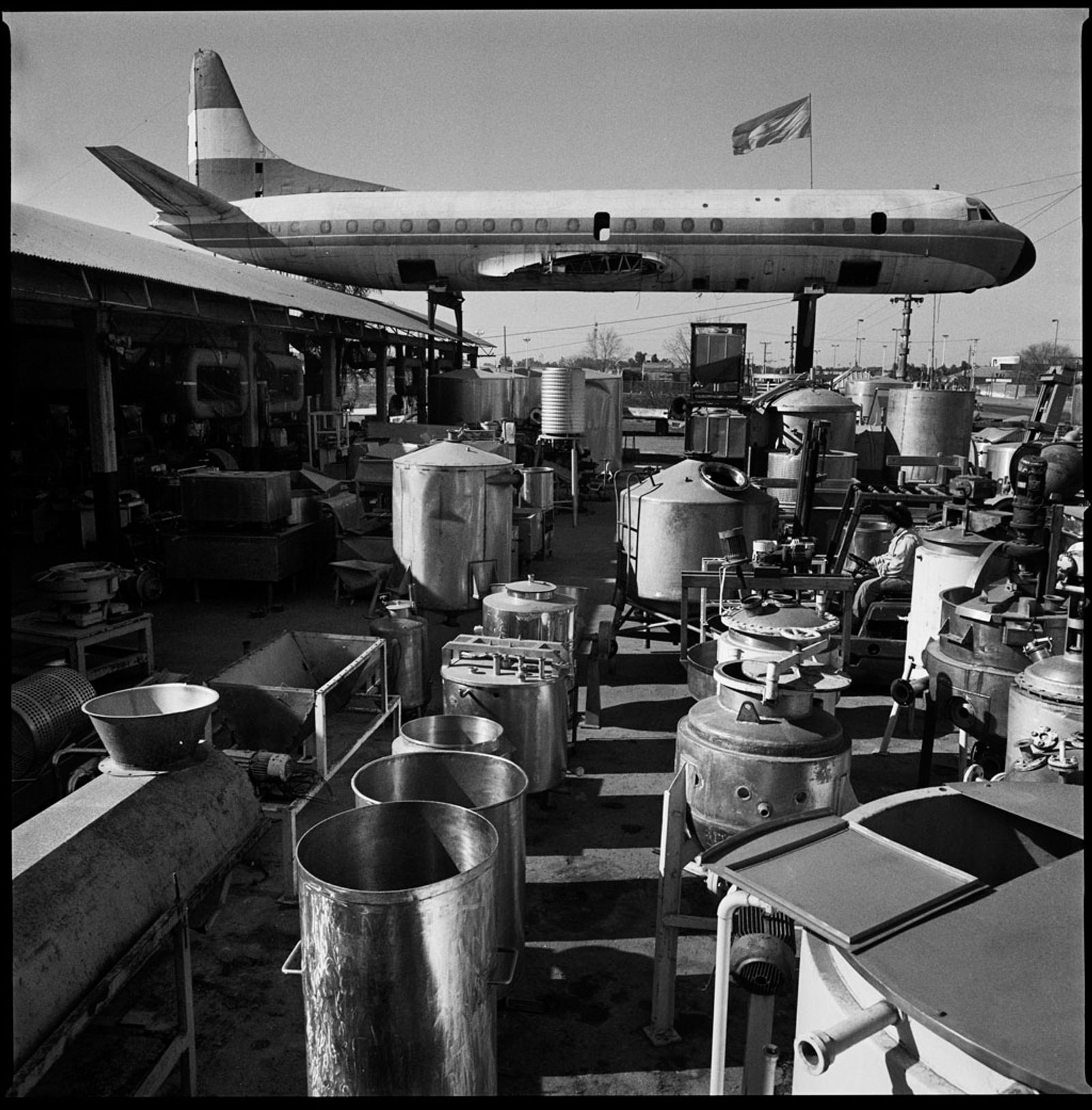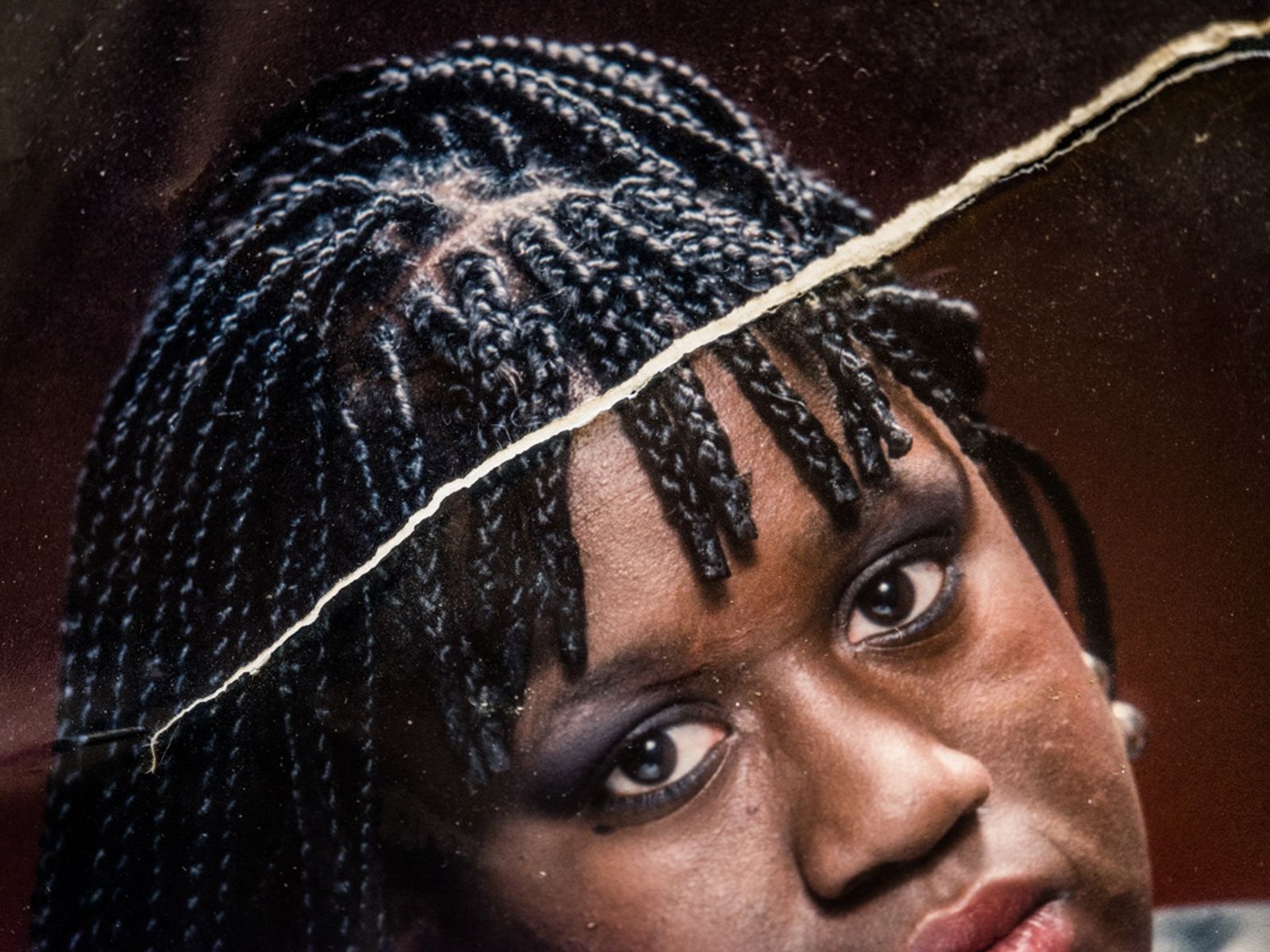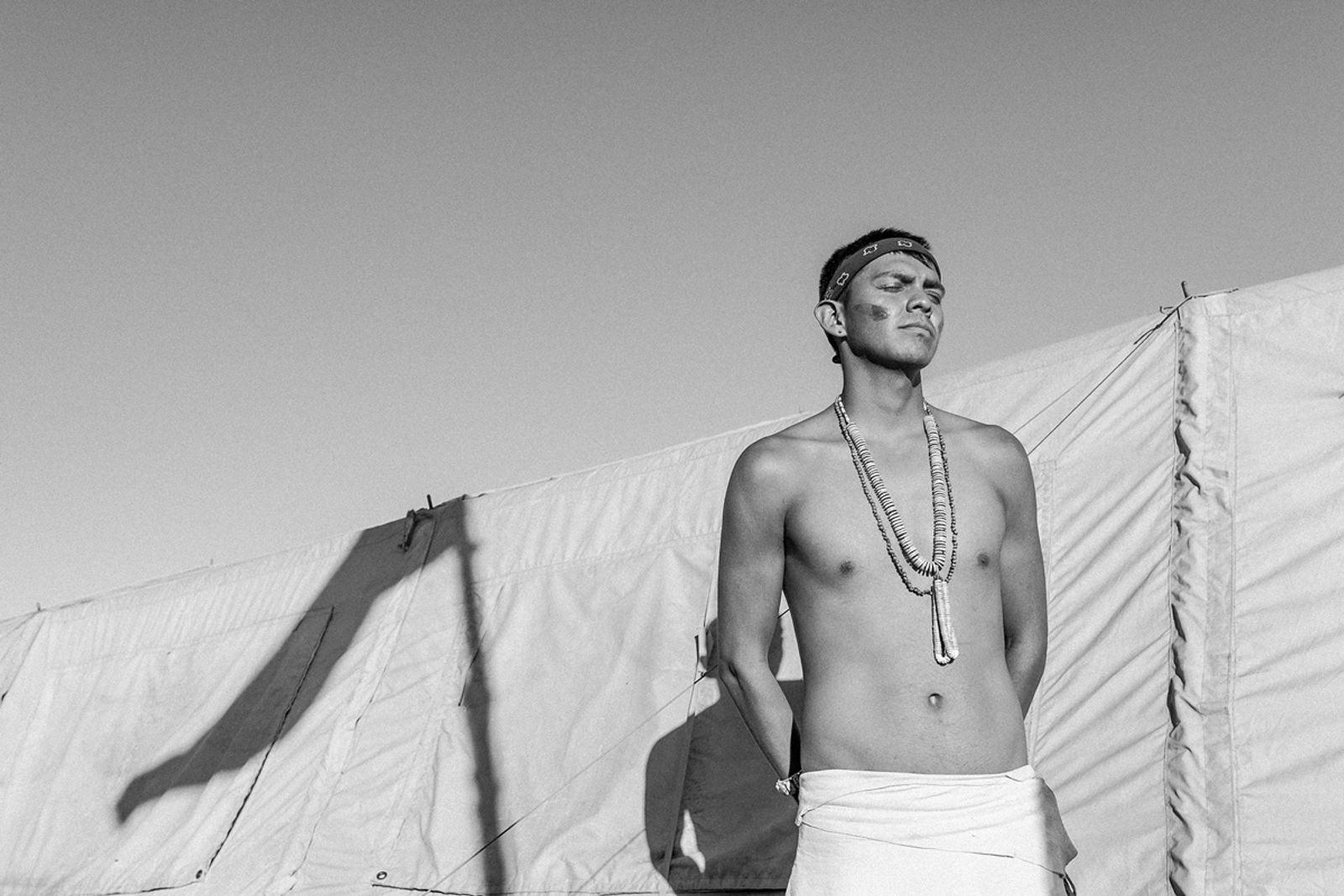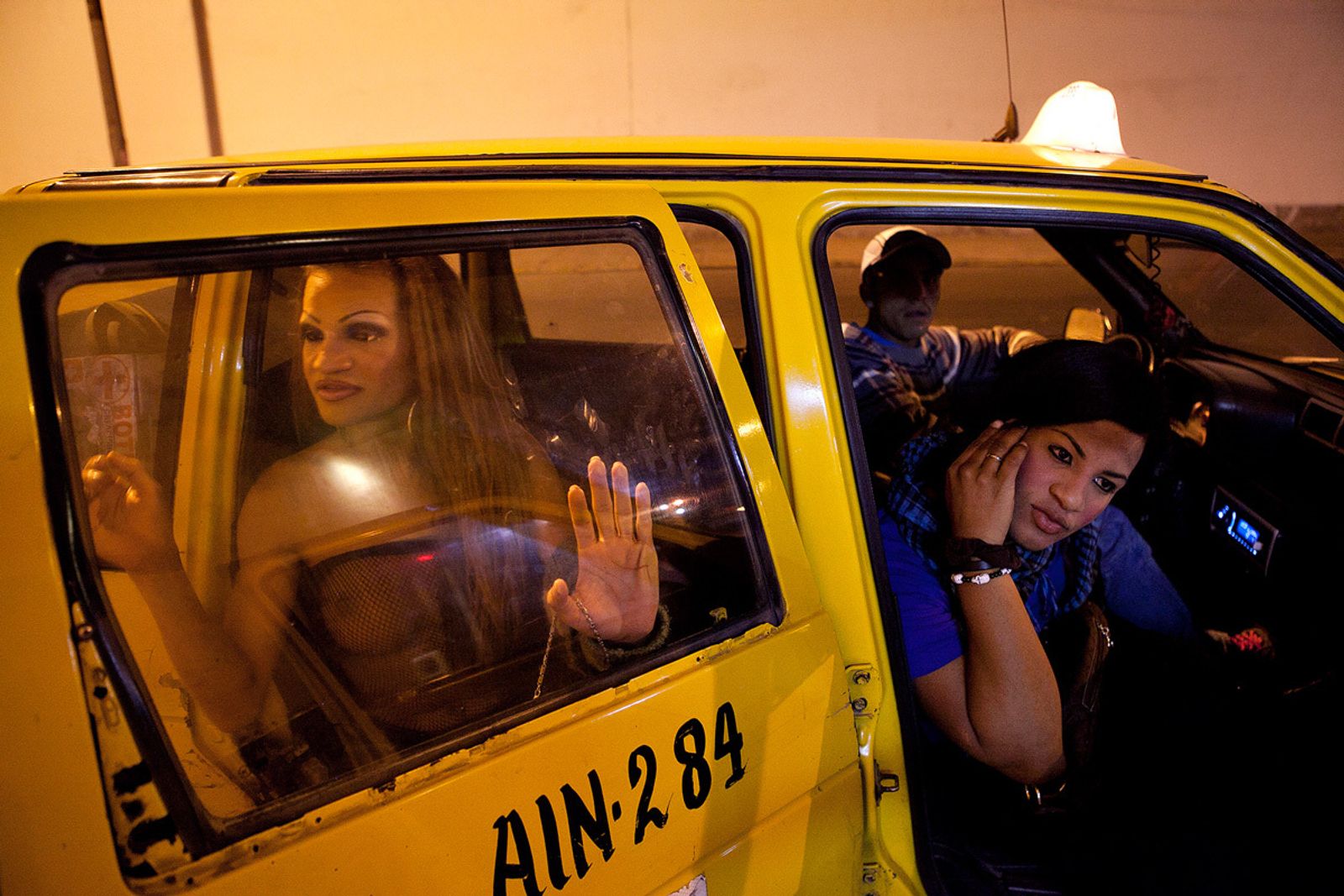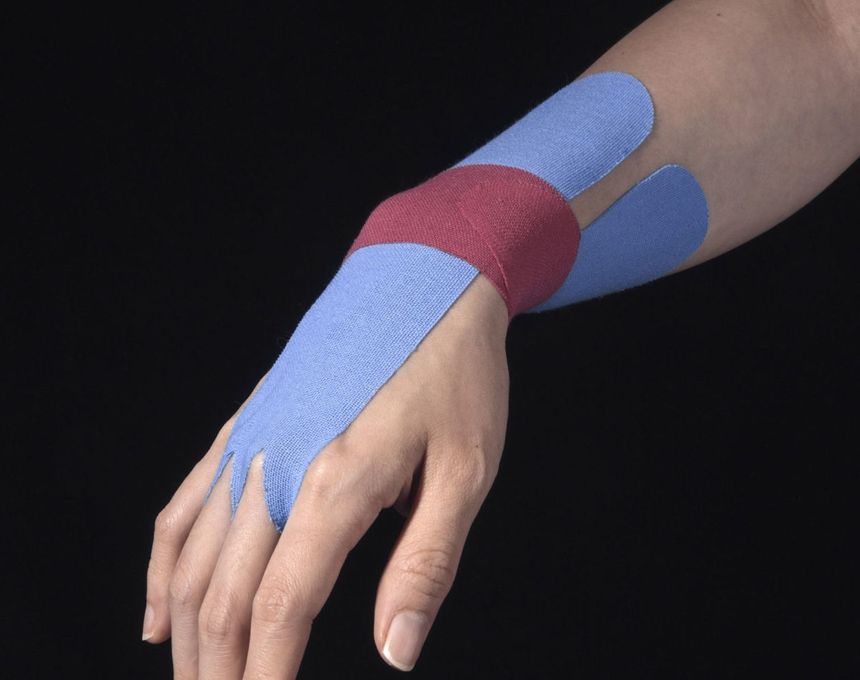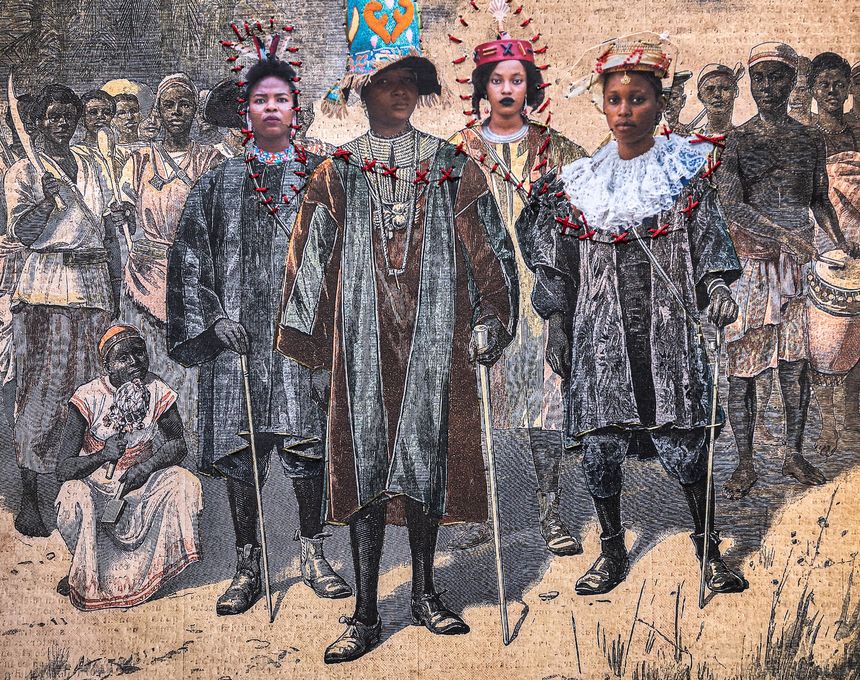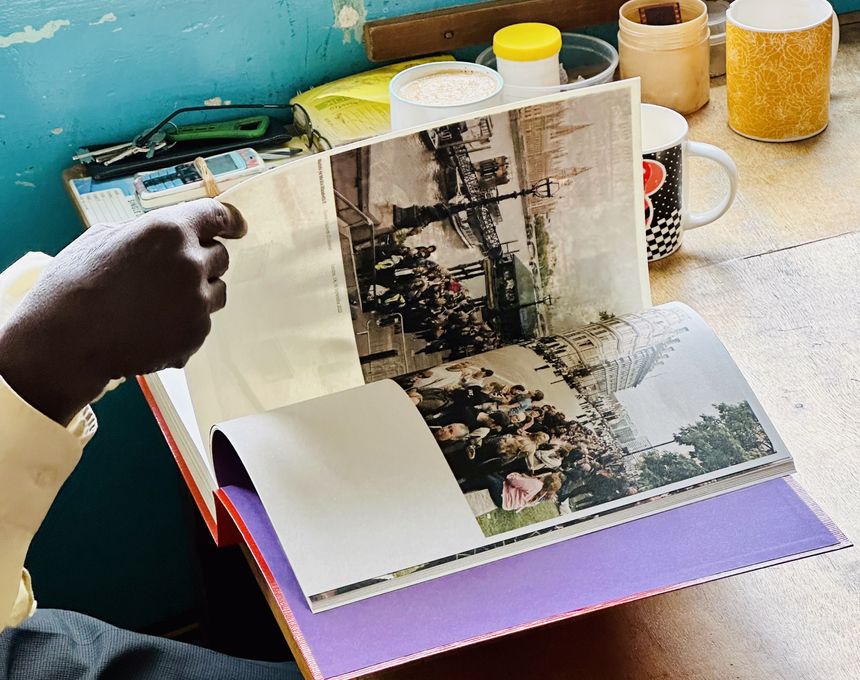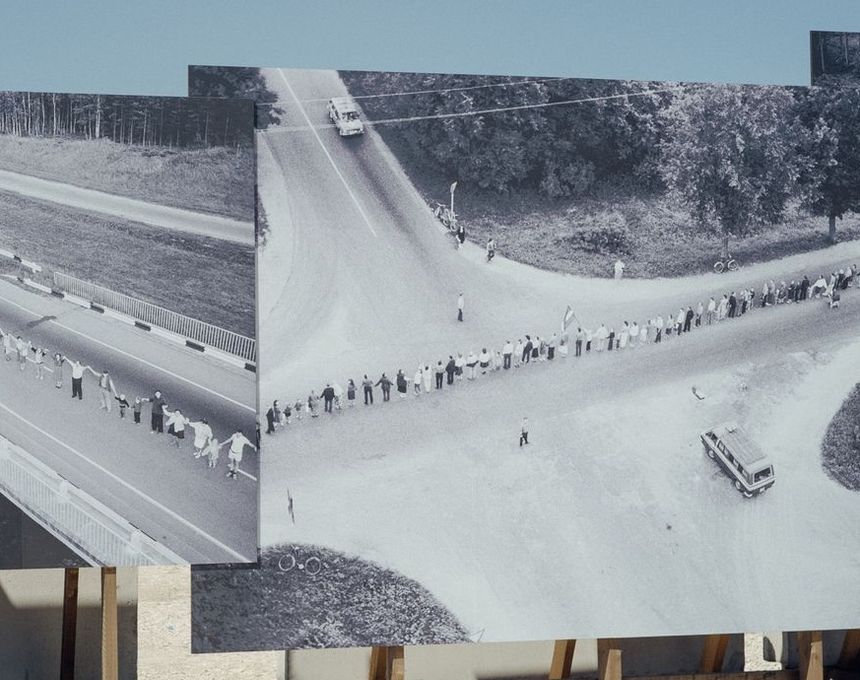Supporting Photography as Evidence
-
Published28 Aug 2018
-
Author
FotoEvidence founder, Svetlana Bachevanova introduces us to their international Book Award in partnership with World Press Photo and discusses their aim to support long-term projects that draw attention to human rights violations and social injustices.
FotoEvidence founder, Svetlana Bachevanova introduces us to their international Book Award in partnership with World Press Photo and discusses their aim to support long-term projects that draw attention to human rights violations and social injustices.
© Fabian Muir, FotoEvidence Book Award with World Press Photo 2017 finalist
As the name clearly states, FotoEvidence supports the concept of photography as evidence and through their annual Book Award the organisation aims to shed light on the most pressing issues of our time. Svetlana Bachevanova talks with us about her personal journey that led to her founding FotoEvidence and shares some of their biggest success stories.
Hello Svetlana! FotoEvidence is a publishing house and an activist organisation and in September this year you’ll be inaugurating the 9th edition of your photobook award. Can you share with us how the project came to be?
I was in my late teenage years when, upon visiting a friend, I learned that one of the guests in the house had recently been released from a concentration camp. The camp was situated near the Danube river, on the Bulgarian border with Romania. He was missing some of his fingers and told us a deeply disturbing story about his life in the camp. At that moment the only concentration camps I knew were the Nazi camps. Back home, the same evening, I shared with my mother what I had learned. I thought she did not know. She was ironing my father’s shirt when I announced the news with anger. She looked at me and whispered, “Don’t talk. Even the walls have ears.”
And this is how it was back then in communist Bulgaria. The news came only by word of mouth with a whisper. The only TV station and the few newspapers were owned by the government. Their news was about the bright future of our country and our brotherhood with the people from the great Soviet Union. Late at night, under the bed, we were listening to Radio Free Europe and the Voice of America to learn what was actually happening in our country.
We did not know anything about the outside world. They did not know anything about us. People who tried to escape across the borders in search of freedom were often taken back and sent to camps. Later I learned that when the communists took power, the entire intellectual elite were killed or sent to concentration camps, and the same was true with the gay population, priests, and many educated people. Eventually you could be sent to a concentration camp for expressing an interest in “degenerate” Western influence, like listening to jazz or wearing a short skirt.
It was a scary time. This experience helped me to understand the importance of information. I was naïve and believed that if the world knew about the beatings, torture and violations of human rights in my country, they would help us to get rid of the communists. After moving to New York in 2010, I founded FotoEvidence with the idea to publish evidence of human rights violations. Today, nine years later we have published 20 books that provide an account of the sorry state of humanity in our time.
© João Pina, FotoEvidence Book Award with World Press Photo 2014 finalist
Why did you choose the photobook as the format to award and spread the winning projects of your call?
First, I began as a photographer and photo director for the first anti-communist newspaper in Bulgaria. So, photography is my milieu. Books have always been a source of fear for dictators. Photobooks provide a permanent record: permanent evidence. I believe they can contribute to accountability for those who commit atrocities and spur social change. The story of FotoEvidence and the books we have published are proof. I am proud that among our publications there are works by changemakers like Robin Hammond, Daniella Zalcman, Marcus Bleasdale, Danielle Villasana, and Josué Rivas.
The annual FotoEvidence Book Award was created to support the work of courageous documentary photographers, who often take great personal risk working around the globe to raise awareness about violations of human rights, injustice, and assaults on human dignity. FotoEvidence books bring to the table evidence of important issues, often under-reported by the mainstream media, that need to be addressed. As an example, the photographs from the book Talibés: Modern Day Slaves by Mario Cruz, were, at the time of publication, the only existing photographic evidence of the dark side of many Koranic schools in Senegal, known as daaras, where young boys are subjected to slave-like conditions.
Mario Cruz recently testified in front of the European Parliament, using his images to document the conditions many talibés suffer. The European Parliament responded by declaring their intention to urgently investigate the issue and bring further pressure on Senegal to dismantle the illegitimate daaras that abuse children. In 2017 FotoEvidence partnered with World Press Photo and the book award was renamed the FotoEvidence Book Award with World Press Photo.
© Zackary Canepari, FotoEvidence Book Award with World Press Photo 2018 finalist
Your contest will be opening soon. What will you be looking for in the applications? What would make a project worthy of a mention or the main prize?
The 2019 FotoEvidence Book Award with World Press Photo opens for entries 1 September. The deadline for submitting the work is 15 October, 2018. The award recognises courage and commitment in the pursuit of human rights. The selection is made by an international jury of photographers, photo editors, and human rights advocates that change from year to year.
Every year the jury reviews dozens of projects from around the world. Jury members look for work that shows a deep cultural and political understanding of the issue addressed, demonstrates strong photographic skills, treats subjects with respect, and adheres to journalism’s ethical code related to the treatment of subjects and the integrity of images.
World Press Photo is the main partner of the award. How do the two organisations support each other and what synergies will this cooperation generate?
The new partnership with World Press Photo (WPPh) opens opportunities for the book award winner and two finalists. The book is released during the opening of the World Press Photo exhibit in Amsterdam and the works of the winner and finalists are part of the exhibit. This provides the photographers and the issues they address with greater exposure.
World Press Photo is also an organisation with open doors and open minds for new ideas. They are not afraid to add new approaches to what has been established in photojournalism. FotoEvidence brings the photobook to World Press Photo. Our brand of publishing long-form photography as evidence contributes another important element to the World Press Photo Foundation’s efforts to promote strong photography, social justice, and the careers of photojournalists.
This was our first year collaborating with WPPh and we hope to see the relationship develop to find new and more effective ways to work together to support documentary photographers and address social issues. We’ve also collaborated on specific projects with other important organisations including The Pulitzer Center on Crisis Reporting, Human Rights Watch, Amnesty International, and The Open Society Foundation, among others.
© Josué Rivas, FotoEvidence Book Award with World Press Photo 2018 winner
Can you tell us about any collaboration between FotoEvidence and a photographer that had a positive impact and helped draw attention to issues like human rights violations and injustice?
Crying Meri by Vlad Sokhin represents a clear triumph for documentary photography. After publication by FotoEvidence, photographs from Sokin’s project about violence against women in Papua New Guinea (PNG) were adapted for a public education campaign by the Untied Nations Office of the High Commissioner of Human Rights, UN Women, Amnesty International, ChildFund Australia, and several other NGOs working in Papua New Guinea. The images made the stories of abuse real and visible to the public and the outcry by concerned citizens and mobilised advocacy groups brought a response by the government of PNG. PNG passed the nation's first law prohibiting domestic violence in 2013 and also eliminated a law that forgave violence against "sorcerers."
The 2016 FotoEvidence Book Award finalist Mario Cruz also saw his work, Talibés Modern Day Slaves provoke an immediate response from the government of Senegal. Cruz gained rare access to false Koranic schools (daaras) in Senegal where a valid educational tradition has been corrupted, leaving many boys in the hands of exploitative teachers (mahouds) who forced them to beg on the street eight hours a day to support the teacher. Cruz captured powerful and disturbing photographs of the lives of young boys subjected to slave-like conditions.
We published Talibés Modern Day Slaves on our website and Cruz received recognition from World Press Photo, who exhibited his work in their travelling exhibit. Shortly after Talibés Modern Day Slaves came off the press, the President of Senegal, Macky Sali, ordered the registration of all daaras in Senegal, an effort to distinguish legitimate schools from exploitative ones. He also ordered the police to identify and assist boys begging on the streets and to close the schools that sent them out to beg. The government also used Cruz’s photographs in a public education brochure alerting the public to the issue and encouraging them to report young beggars and help identify illegitimate daaras.
The photographers and works published by FotoEvidence have also been recognised with many other awards, including multiple World Press Photo Awards, the W. Eugene Smith Grant in Humanistic photography, the Visa Pour L'Image - Remi Ochlik Award, the Robert R Kennedy Photojournalism Award, Picture of the Year International, the National Press Photographers Association Award, World Understanding Award, and the Magnum Foundation Emergency Fund grant.
© Danielle Villasana, Finalist FotoEvidence Book Award with World Press Photo 2018.
In our contemporary society, technology and social media have completely changed the way we approach the news. How do you think the role of photography has developed over the past few decades?
Nowadays, with digital cameras and cell phones, everyone can be a photographer and citizen journalist. Even in the most repressed society, people are able to document the injustices they witness and sneak it on social media. We see every day images and videos of people facing discrimination, harassment, assault, unlawful arrest, even murder. The list is long. It is sad and sometimes overwhelming but extremely important for social awareness. The image of the little Syrian boy Aylan Kurdi, found dead on the beach, and largely shared on social media, impacted the policy about refugees in Europe.
I have doubts that the communist regime in Eastern Europe would have lasted 45 years if we were equipped with smart phones and Facebook accounts. On the other hand, the huge number of images of injustice worldwide has the potential to numb us to human suffering. For this reason we feel that the long-form, humanistic photography that FotoEvidence publishes is more important than ever, to reach below the surface of the millions of images and tell deep and powerful stories in a long-form. This is what FotoEvidence stands for and supports in its publications.
What are your goals for the future?
FotoEvidence remains focused on finding and publishing important long-form photography focused on human rights. Our partnership with World Press Photo is new and developing and we hope this will expand our audience and bring greater attention to the issues our books address. We have also initiated a workshop program with some of the photographers we have published. The “Expose” workshops will focus on approaching a long-term project with a book in mind.
FotoEvidence’s potential for using photography for social change is only limited by the resources available, so we are actively seeking a social investor or philanthropic partner to help us expand the project. Every year, when I review the submissions to the book award, I’m reminded of that evening when I first heard the story from the concentration camp. Conditions have improved somewhat in my country but it’s clear that human rights are under systematic assault in many places and many ways. My hope is that FotoEvidence will be able to grow and expand its support for documentary photographers working in the humanistic tradition and continue to produce concrete evidence about violations of human rights and dignity.
--------------
The 2019 FotoEvidence Book Award with World Press Photo opens 1 September, 2018, at 12:01 a.m. and closes at 12:00 p.m. EST 15 October, 2018. Learn more and apply at fotoevidence.com.
--------------
Svetlana Bachevanova is a long time photojournalist and the publisher at FotoEvidence, a publishing house and activist organisation that supports documentary photography focused on human rights and social justice. Follow her on Twitter and Instagram.
